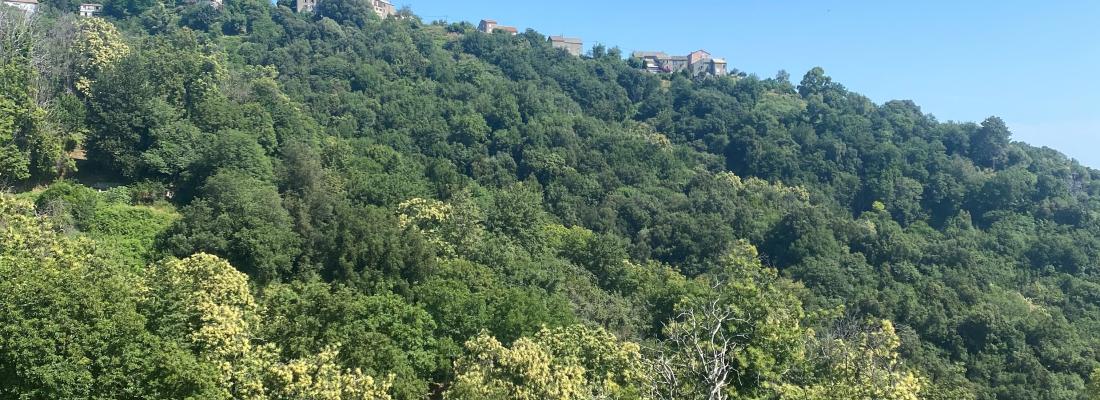MOVING Project – How climate change impacts mountains
Published on 09 March 2023

The main objectives of MOVING are:
- Support the development of policies aimed at improving mountain resilience through new or reoriented value chains
- Strengthen the capacities of mountain regions and stakeholders to improve climate resilience
- Establish a European community of actors to promote the exchange of knowledge and experiences
- Identify the socio-ecological factors that will shape the future of mountain value chains by 2050
Sustainable mountain development requires alternative economic models that respect socio-ecological systems. For that, the program aims to analyse vulnerability, assets and past trajectories. By understanding and promoting the multifunctionality of agricultural activities they hope to be able to conceive value chains as an assemblage of different socio-ecological systems, connecting actors and resources.
Regarding Corsica, researchers from INRAE's Mediterranean and Tropical Livestock Systems - Livestock Development Research Laboratory (SELMET - LRDE) have chosen the PDO chestnut flour value chain. An emblematic product of the Corsican mountains, chestnut flour is the result of a successful revival initiative that led to its certification in 2010. The PDO initiative has resulted in the renovation of part of the chestnut grove, the recognition of the profession of chestnut grower and the revival of consumption. Chestnut groves are today a strategic resource, included in the specifications of 5 appellations (PDO: Prisuttu, coppa, Lonzu, PDO Corsican honey and chestnut flour).
In addition to the economic value of the fruit, chestnut groves have a major impact on culture and land management on Corsica, in terms of land use and development, fire prevention, food supply, entertainment and the fight against depopulation in the villages.
The success of the revival is now being undermined by the changing climate conditions. Old challenges, such as the decline in rural productive activities, the degradation of chestnut orchards due to tree ageing, disease and competition from other human activities—especially livestock farming—are exacerbated by the ecological crises.
The new climate situation and its consequences call for new efforts to coordinate and organise the main actors, as well as new means to promote a recovery plan. Within this framework, several research areas have been addressed—coexistence of activities, pluriactivity, multifunctionality of landscapes and resources, professional identity, gender and youth issues. The aim of the research is to identify the vulnerabilities of chestnut orchards—biophysical, sanitary, social—their resilience, particularly in the face of climate change, their different uses and their ability to coexist with other species, in terms of resource sustainability and, more generally, the socio-ecological system.
An initial study of the vulnerability of orchards and the value chain led to a foresight study conducted in partnership with INRAE’s DEPE. This study brings together a variety of stakeholders of the chestnut industry: Organisme de Défense et de Gestion de l'AOP, Groupement des producteurs de châtaignes et de Marrons, Parc Naturel Régional de la Corse (Regional Natural Park of Corsica), Office National des Forêts (National Forestry Office), Office de Développement Agricole et Rural de la Corse (Agricultural and Rural Development Office of Corsica), Office de l'Environnement (Environment Office), and the town councils of Nuceta and Bucugnanu).
